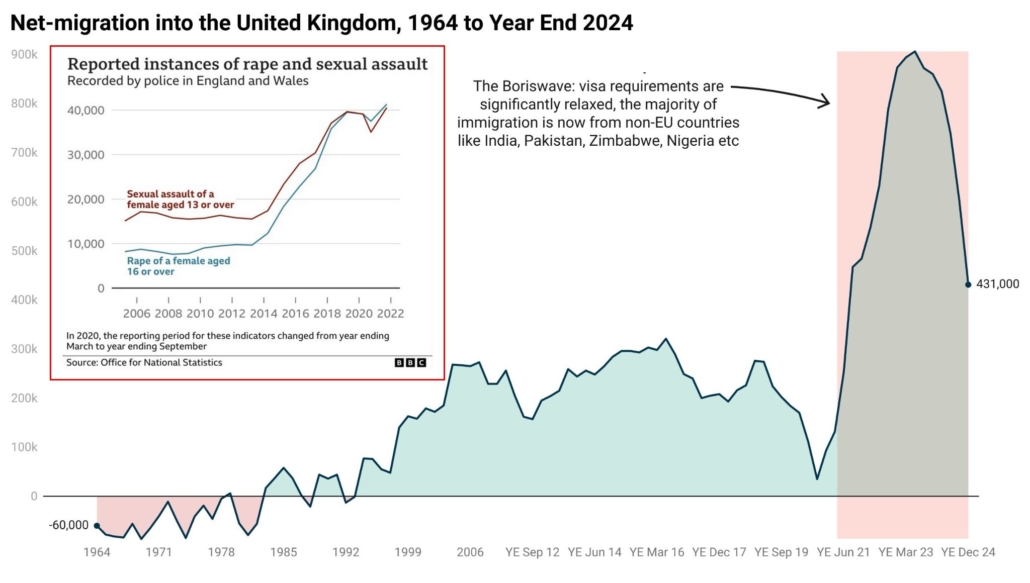Zionist Terrorism, what is left for Hamas?
Some Zionist terrorists had a beautiful career; they had authority, audacity and a very convincing dignity — especially when, having become Prime Minister, they treated others as rabble.
 Count Folke Bernadotte in his headquarters on the island of Rhodes, Greece, 19 July 1948. Source: United Nations audiovisual bookshop.
Count Folke Bernadotte in his headquarters on the island of Rhodes, Greece, 19 July 1948. Source: United Nations audiovisual bookshop.
I – A short analytical review of the main terrorist acts of Haganah, Palmah, Irgun (Etzel), Stern and Lehi.
First, it is worth remembering that not only were Jews engaged in fierce campaigns of terrorism in Mandatory Palestine and abroad against the British, but they openly incited terrorism — in a high-profile American newspaper. On May 15, 1947, playwright and screenwriter, and American League for a Free Palestine co-chairman Ben Hecht published in the New York Post “Letter to the Terrorists of Palestine”. The ad said, “We are out to raise millions for you.” This letter included the infamous phrase that every time British soldiers were shot or blown up “the Jews of America make a little holiday in their hearts.”
Hecht also wrote a Broadway play to raise money. In A Flag Is Born, the role of a Holocaust survivor was played by Marlon Brando.
1 – Indiscriminate Attacks on Civilians
Unless I am mistaken, indiscriminate violence against civilians is generally the criterion used to talk about terrorism. So, here are some examples:
- Grenade attack on 17 March 1937, the first by an Irgun militiaman, against a café frequented by Palestinians. Many victims are reported.
- Bomb attack on a busy Palestinian market in Haifa, on 6 July 1938, by members of the Irgun, killing 21 people and injuring 52.
2 – Attacks on Civil Collective Transport (Train – Boat)
- A huge explosion shakes the city of Haifa on the morning of November 25, 1940. It is discovered that the target is a French ship, SS Patria, docked in the port, with on board 1800 Jewish migrants, including women, whom the British authorities wish to send to Mauritius because they do not have residence permits in Palestine. Opposed to the British project, the Haganah decides to damage the ship. Result: 252 deaths among the Jewish passengers, to which 12 victims were added among the British police officers, and 172 were injured among the other passengers. The Palestinian sailors managed to save the rest of the migrants from the shipwreck. The survivors were then authorized by the British to remain in Palestine.
- The bombing of the Cairo-Haifa train, in March 1948: just a few months before the start of the 1948 Arab-Israeli war, the Cairo-Haifa train was bombed several times, attacks claimed or attributed to Lehi. A single attack kills 40 civilians and injures 60 others. In February, an attack kills 28 British soldiers and injures 35 others.
3 – Mass Killing in the Villages
- Attack by a unit of the Haganah on the village of Beit Sheikh, near Haifa, in June 1939. Abduction of 5 villagers who will be assassinated.
- On April 9, 1948, units of the Irgun and the Lehi commit a massacre in the village of Deir Yassin, which counts 700 Palestinians, among whom more than a hundred are assassinated.
- During the night of 22 to 23 May 1948, eight days after Israel’s proclamation of independence, the Alexandroni brigade of the Palmah (“Shock Unit”) seized Tantura, a prosperous port village with some 1,600 Arab inhabitants, about thirty kilometers south of Haifa. After brief fights, the soldiers gathered the remaining Palestinian inhabitants. They kill between 200 and 250 people and expel the others towards the neighboring village of Fureidis, where workers will have to dig two mass graves and bury the corpses — next to the beach, under the current parking lot of the kibbutz built on the village leveled by bulldozers.
4 – Explosives Hidden in Civilian Objects
- On 29 June 1946, following a wave of arrests by the British police in the offices of the Jewish Agency, the Irgun militia, led by Menahem Begin, decides to target the headquarters of the British army, installed at the King David Hotel in Jerusalem. It was dynamited on July 22, 1946, resulting in the death of 91 people including 28 British, 17 Jews, 41 Palestinians, and 5 other victims from various affiliations.
When Carter went to Israel in March 1979, in a meeting in the Presidential Suite of the King David Hotel, Begin bragged to Carter about blowing it up in 1946. “I’ve always liked the King David Hotel. You know, I blew it up once, using explosives in milk canisters.” He enjoyed the joke, smiling as he concluded, “Don’t worry, I’m not going to do it again.”
5 – Invention of the Car Bomb Attack
- On December 5, 1946, the Lehi used for the first time the car bomb process, stationed near buildings in Sarafend.
6 – Parcel Bombs
- Between June 4 and 6, 1947, twenty letter bombs were sent from Italy to British politicians in London. In 1948, Rex Farran, brother of the intended target, Captain Roy Farran DSO, MC — an SAS anti-terrorism specialist, opened the parcel bomb addressed to “R. Farran” at the Farran family home in Staffordshire. He was eviscerated by the explosion; the package bomb had been sent by Misrahi’s colleagues in the Paris-based Stern Gang cell.
7 – Kidnapping — Hostage Taking
- On 18 June 1946, British citizens were kidnapped as a means of exerting pressure on the authorities in their country. This is the first resort of Zionist terrorism to the process of hostage-taking.
8 – Kidnapping – Liquidation
- On 29 July of the same year, the same militia proceeded to kidnap British soldiers and liquidate them in the area of Netanya. This is a particularly odious case in which two young sergeants were hung with piano strings in the middle of a grove of eucalyptus trees near Netanya. The attack triggered a Crystal Night in England.
9 – Attack on Foreign Soil
- On October 31, 1946, the Lehi used explosives against the British embassy in Rome.
- Late one bitter cold evening in March 1947, young French philosophy student Robert Misrahi slipped away from a servicemen’s social club just off Trafalgar Square in the heart of London. Minutes later, the British Colonies Club was wrecked by a massive explosion, causing many injuries but miraculously no deaths. Misrahi had left his overcoat at the club, its shoulders packed with gelignite.
10 – Targeted Killings (or attempted) of Senior Civilian Officials
- The Lehi tried to assassinate the British high commissioner in Palestine, Harold McMichael on August 8, 1944.
- Two members of the Lehi assassinate Lord Moyne in Cairo on November 6, 1944. Lord Moyne was the highest representative of the British government in the Middle East, targeted for his support for the project of an Arab federation in the region. The two assassins, Eliyahu Bet-Zuri and Eliyahu Hakim, are tried by a military tribunal and executed by hanging in Cairo on March 23, 1945.
11 – Attack against Mediators from International Bodies, the Red Cross, and the UN
- The most important assassination, however, remains that of the Swedish count Folke Bernadotte (1895–1948), number two of the Swedish Red Cross before being appointed in May 1948 by the UN secretary general, Trygve Halvdan Lie, mediator for Palestine. He was striving to amend the partition plan of Palestine in order to settle disputes between Jews and Arabs. The leadership of Lehi decided to assassinate him. Four of its members, dressed in Israeli army uniforms, blocked his car on 17 September 1948 in the part of Jerusalem controlled by the Israelis. They shot at him as well as another passenger, the French Colonel André Sérot, head of the UN military observers in Palestine. The two men are killed on the spot. An organization called «Front National» then claims the operation to cover up the crime. The attempt at diversion was not successful, however, and the condemnation of the real perpetrators is unanimous.
Assassinated for having proposed in his report the unconditional return of all refugees, and a re-dividing of the country into 2 equal parts, it was partly due to the work of Bernadotte based on international conventions that on 4 November 1948 the UN General Assembly passed resolution 194 in favour of the right of return for refugees. Count Bernadotte had also obtained a truce in July, but the Israeli army took advantage of it to continue the ethnic cleansing.
A minute of silence is observed at the General Assembly in tribute to Count Bernadotte during the UN General Conference.
12 – Project for a massive Attack by Poisoning the Water Supply
- Paris-based Stern Gang cell’s leader Yaacov Eliav had planned what would have been the worst terrorist atrocity of all time soon after Misrahi’s arrest. He obtained active cultures of cholera bacteria from Jewish contacts at the Pasteur Institute in Paris. A water engineer was sent to London to scout the best method of introducing cholera into the city’s water supply. It was only following Zionist success in winning UN backing later in 1947 that this cholera plan was abandoned.
A film by the Paz brothers, ‘Plan A’ – poisoning the water supply of Nuremberg, shows the activities of the Nakam who wanted to kill millions of Germans after the war to take revenge for the Holocaust but ended up crossing paths with the Jewish Brigade, which made him abandon his project. The premiere in Israel was held in September 2021 at the Haifa film festival.
II – The Prestigious Posterity of the Terrorists
1 – Ben Gurion
As we know, he became the first Prime Minister of Israel, yet he was the head of the Haganah and it is the Haganah that is directly involved in the attack on the village of Beit Sheikh.
In any case, he also oversaw the Irgun and the Lehi. After the assassination of Bernadotte, Prime Minister Ben Gourion dismantled the Lehi and the Irgun to calm the UN; this act was covered up and the investigation botched. Only one of the three leaders of the Lehi will do 15 days in prison.
2 – Yitzhak Shamir
Shamir joined the Mossad and then was a member of the Likud parliament. He was elected President of the Knesset in May 1977, then became Minister of Foreign Affairs and, twice, Prime Minister of Israel (until 1992).
He led the Lehi; the three perpetrators of the ambush against Folke Bernadotte and the French Colonel André Sérot belonged to the Lehi.
3 – Menahem Begin
Prime Minister from 1977 to 1983 Begin led the Irgun.
4 – Yeoshua Cohen
He later confessed to having shot Bernadotte; he was one of the founders of a kibbutz in the Negev where David Ben-Gurion will retire. He was decorated by Ben Gurion.
III – Some remarks on Hamas
1 – Hamas is not a regular army; on October 7, its attack killed 1,200, but this compares to 784 British police officers, military personnel, and crown servants, victims of Jewish terrorism during the Palestinian mandate crisis between 1944 and 1948.
2 – Today, the Palestinian resistance is essentially Muslim, but who is to blame?
In 1947, at the time of independence, 25% of the population of Palestine was Christian. It was not the Muslims who drove them out of Palestine.
Among the first wave of resistance were many terrorists (or thinkers) of Christian persuasion: Georges Habache, Wadie Haddad, Georges Abdallah, Kamal Nasser, Nayef Hawatmeh, Monseigneur Hilarion Capucci, Michel Aflak, Antoun Saadeh, Constantin Zureiq, Leïla Khaled, Hanan Achrawi, Edward Saïd, Elias Khoury, Souha Tawil.
3 – Radical Islamist movements are the work of the West — in Afghanistan, in Tajikistan or, lately, in Syria where Joulani seems to be an emanation of Mossad.
4 – Hamas does not take action outside of Israel, nor does Hezbollah.
Conclusion,
Free Palestine does not mean now what it meant then.
But our Jewish-owned media seem to follow the motto: “do as I say (now), not as I did (then)”
Speaking of terrorists, it must be remembered that the IDF was created by the gathering of the Hagahna, the Irgun, and the Lehi.
Tintin would have told you so:
Tintin – Land of Black Gold (first version)
Francis Goumain
Sources:
Institut pour les Études Palestiniennes
Aux origines du terrorisme sioniste | Institut des études palestiniennes
Association France Palestine Solidarité
CJPMO (Canadians for Justice and Peace in the Middle East)
Le terrorisme juif sous le mandat britannique – CJPMO – French
The Occidental Observer
August 1947—Kristallnacht in the UK in response to Jewish anti-British terrorism in Palestine to the sergeants hanged in Palestine affair
Jeune Nation Le massacre de « Tantura »
Le massacre de « Tantura » – Jeune Nation
Real History
French Jewish terrorist escapes extradition to UK – Real History
Counter Currents
The Occidental Observer Commemorating British Casualties of Jewish Terrorism, 1944–1948
Commemorating British Casualties of Jewish Terrorism, 1944–1948 – The Occidental Observer
Renagade Tribune
Jeune Nation Des chrétiens dans la résistance en Palestine – La Résistance Palestinienne Chrétienne
https://jeune-nation.com/actualite/geopolitique/des-chretiens-dans-la-resistance-en-palestine
Politics Forum – Letter to the Terrorists of Palestine by Ben Hecht of the PALESTINE RESISTANCE FUND
Letter to the Terrorists of Palestine by Ben Hecht – Politics Forum.org | PoFo


 “
“ “Hear and obey, goyim!” Jewish judge David Bean overturns a pro-White injunction (
“Hear and obey, goyim!” Jewish judge David Bean overturns a pro-White injunction ( More vibrant migrants = more sexual violence
More vibrant migrants = more sexual violence What’s good for goyim is not good for Jews:
What’s good for goyim is not good for Jews: 




